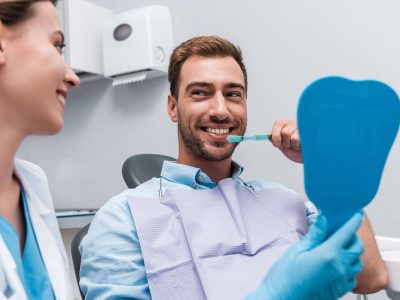Bruxism is another term for teeth grinding or teeth clenching. It is a condition in which many people, often unknowingly, clench or grind their teeth during the night. Bruxism is a relatively harmless-sounding term that can have drastic consequences for a patient’s oral health — especially in the case of those with dental implants. Residents of West Houston, TX, who are considering or currently having dental implants need to understand how bruxism can affect them as explained by a specialist in dental Houston.
What is Bruxism?
Bruxism is, in a nutshell, when you grind or clench your teeth, whether day or night, and some people do it unconsciously. Amongst them, sleep bruxism — also referred to as nocturnal bruxism — is more prevalent and is usually subconscious to the person. It can have many causes, including stress, anxiety, an abnormal bite, teeth that are missing or crooked, and sleep disorders.
Symptoms of Bruxism
- A headache or earache that persists
- Sore or painful jaw muscles
- Worn-down teeth
- Increased tooth sensitivity
- Chipped or cracked teeth
Dental Implants: An Overview
Dental implants are screws made of titanium that serve as a new tooth root and are surgically installed into the jawbone. These fixed or removable replacement teeth are custom-designed so that they feel like part of the patient’s natural teeth. Since dental implants are designed to be anchored to the bone, they are meant to be durable, functional, and long-lasting — making them an ideal option for patients struggling with the loss of a tooth or teeth.

Stress Bruxism and Dental Implants: Overview
Increased Wear and Tear
Bruxism puts huge forces on dental implants, far greater than what natural tooth surfaces typically experience. This constant load may contribute to wear and tear of the implant components: the crown, abutment, and the implant itself. Over time, this can lead to implant loosening or damage, requiring repair or replacement.
Bone Loss and Implant Failure
The increasing forces from bruxism can also impact the surrounding bone structure. Dental implants need the jawbone for support and stability. Grinding over time can cause the bone around the implant to deteriorate, compromising the stability of the implant. In severe cases, this can lead to implant failure, where the implant no longer stays securely anchored in the jaw.
Gum Recession and Infection
Bruxism can cause gum recession that may expose the implant, increasing its risk of bacterial infection. If an infection occurs around the implant site it can lead to peri-implantitis, a condition similar to periodontal disease. If untreated, this can lead to peri-implantitis, a devastating consequence whose early stages can only be repaired through bone augmentation.
Bruxism Management to Preserve Dental Implants
Use of Night Guards: A night guard helps if you are experiencing bruxism. A custom-fitted night guard can spread the forces exerted during grinding, protecting both native teeth and implants. It serves as a padding that absorbs some shock before affecting the implant, which helps prevent injury.
Stress Management: As stress and anxiety are common causes of bruxism, employing stress management tools throughout the day may also help. Engaging in activities like mindfulness meditation, yoga, and exercise also may help lower stress, which may lead to less bruxism.
Bruxism can be problematic for people with dental implants; however, its effect can be mitigated with appropriate management and preventive measures. For those who live in West Houston, TX, who grind their teeth, and who have or are considering dental implants, it’s important to partner closely with your dental professionals to protect your oral health. Thus, proactive efforts to treat bruxism are crucial in retaining the longevity of dental implants so that the smile remains functional and healthy.








Comments